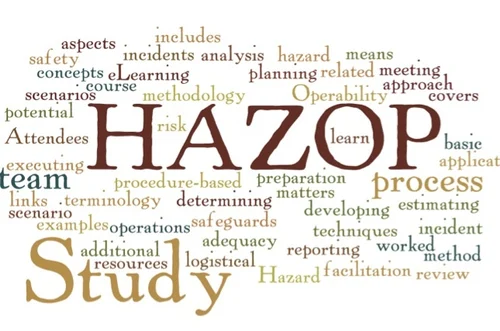Event Planning: A Key Hotel Department Role

Event planning plays a significant role in the hospitality industry. Hotels often host various events such as weddings, conferences, corporate meetings, and parties. To ensure these events run smoothly, a dedicated event planning department is necessary. This department manages everything from initial planning to final execution, ensuring guest satisfaction and maintaining the hotel’s reputation.
Understanding Event Planning in Hotels
Event planning in hotels involves coordinating multiple tasks to create a seamless experience for clients and guests. The event planning team works closely with different departments, such as food and beverage, housekeeping, and front desk, to ensure that all event requirements are met. Their primary goal is to deliver a well-organized event that meets the client’s expectations.
Key Responsibilities of the Event Planning Department
The event planning department in a hotel is responsible for various tasks. These tasks include understanding client requirements, arranging venue setup, managing catering services, and handling guest accommodations. They also ensure that all technical requirements, such as audio-visual equipment and lighting, are in place. Proper coordination with the hotel’s departments helps the event run smoothly.
Importance of Communication in Event Planning
Effective communication is vital in event planning. The event planning team regularly communicates with clients to understand their vision and requirements. They also collaborate with the hotel’s staff to ensure that everything is aligned with the client’s expectations. Good communication helps in avoiding misunderstandings and ensures that every detail is addressed efficiently.
Managing Budgets and Resources
Another important aspect of event planning is managing budgets and resources. The event planning team works within the client’s budget while ensuring high-quality service. They negotiate with vendors, manage supplies, and allocate resources effectively. Budget management ensures that the event stays within financial limits without compromising quality.
Venue Selection and Setup
Selecting the right venue is crucial for a successful event. The event planning team considers factors such as the size of the event, type of occasion, and client preferences before finalizing a venue. Once the venue is selected, the team ensures that the setup is done as per the client’s requirements. They manage seating arrangements, decorations, and other necessary arrangements to create the desired ambiance.
Coordination with Vendors and Service Providers
Event planning in hotels also involves coordinating with external vendors such as caterers, decorators, photographers, and entertainers. The event planning team negotiates contracts, ensures timely delivery of services, and supervises vendor performance. By maintaining a good relationship with vendors, they ensure that all services meet the hotel’s standards and client expectations.
Handling Unexpected Challenges
Events may sometimes face unexpected challenges, such as last-minute changes or technical issues. The event planning team must be prepared to handle these challenges effectively. They stay calm under pressure, find quick solutions, and ensure that the event continues without disruption. Their ability to think on their feet makes a significant difference in the success of the event.
Ensuring Guest Satisfaction
Guest satisfaction is a top priority in the hospitality industry. The event planning team goes the extra mile to ensure that guests have a memorable experience. They pay attention to every detail, from the welcome arrangements to the closing moments of the event. Providing excellent service and meeting guest expectations helps build a positive reputation for the hotel.
Role of Technology in Event Planning
Technology has revolutionized event planning in hotels. Event management software helps streamline various processes, such as sending invitations, managing guest lists, and tracking budgets. Audio-visual technology enhances the overall event experience, ensuring that presentations, music, and lighting are flawless. The use of technology helps event planners deliver exceptional services efficiently.
Training and Skills Required for Event Planners
Event planners need a combination of technical and interpersonal skills. They should possess organizational skills, creativity, and attention to detail. Good communication and negotiation skills are also essential. Many aspiring event planners pursue education in hospitality management. Those looking to excel in this field can consider studying at the Best Hotel Management College in Kota to gain the necessary knowledge and skills.
Career Opportunities in Event Planning
Event planning offers diverse career opportunities within the hospitality industry. Event planners can work in hotels, resorts, convention centers, and event management companies. They can specialize in different types of events, such as corporate events, weddings, or social gatherings. Graduates from the top hotel management center in Kota often find excellent job opportunities in this field.
Importance of Event Planning for Hotel Revenue
Event planning contributes significantly to a hotel’s revenue. Hosting successful events enhances the hotel’s reputation and attracts more clients. It also increases bookings for guest accommodations, food and beverage services, and other facilities. Well-planned events create positive word-of-mouth, resulting in repeat business and referrals.
AHA Kota: A Center for Hospitality Excellence
To excel in event planning and hotel management, quality education and practical exposure are essential. Many aspiring professionals choose institutions like AHA Kota for comprehensive training in hospitality management. The knowledge gained from a reputed institution helps students build a successful career in event planning and related fields.
Conclusion
Event planning is a crucial department in hotels that ensures the success of various events. It involves coordination, communication, and effective management of resources. The event planning team works diligently to meet client expectations and deliver a memorable experience for guests. For those aspiring to build a career in event planning, gaining knowledge from the Best Hotel Management College in Kota or the top hotel management center in Kota can be a stepping stone to success. With the right skills and education, event planners can play a vital role in enhancing a hotel’s reputation and revenue.







